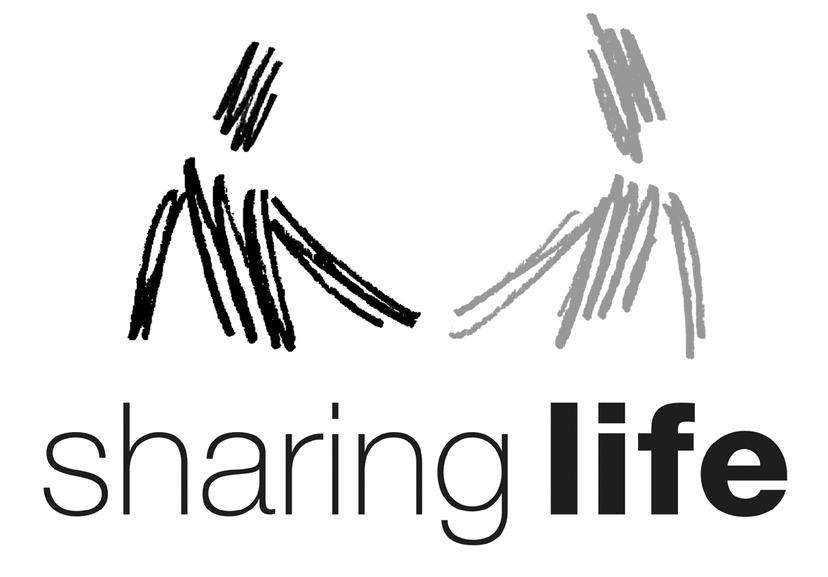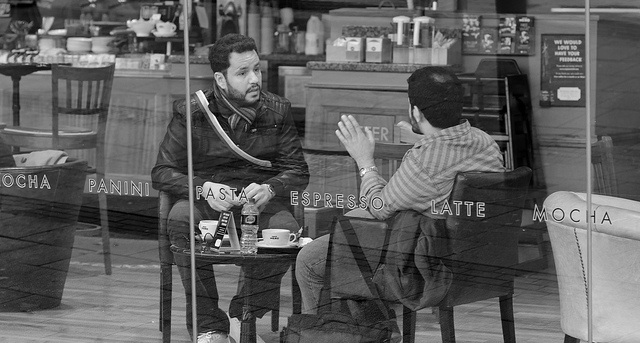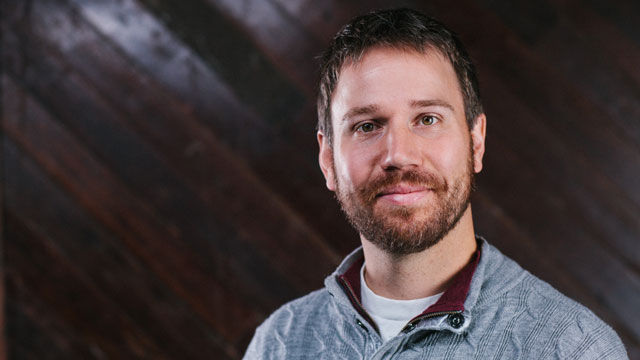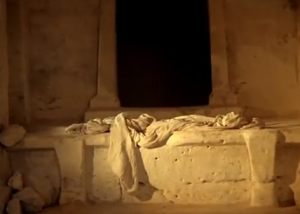|
This week's post comes from Ashley Tripp, a University of Alabama alumni, who posted for Cru.org. As you read, ask yourself, "Do I need to hear this?" or "Is there an incoming freshman I could encourage this with?"
A growing trend reveals that college freshmen aren’t just preparing a goodbye speech to their families, but to their faith as well. Conor Friedersdorf writes in The Atlantic, “[Freshmen] leave their church, the community incentives to attend it, and the watchful eye of parents who get angry or make them feel guilty when they don’t go to services or stray in their faith. Suddenly they’re surrounded by dorm mates of different faiths or no faith at all.” However, because I attended a university in the heart of the Bible Belt, it came as no surprise to see many college students dressed in their Sunday best for church. But what did come as a shock to me was how these church attenders behaved the remaining six days of the week. Attending church doesn’t make one a Christian, and yet, this is a lie many college students believe. Even as someone who grew up in a Christian family, I struggled too with living out my faith instead of saving it for Sundays. Certain barriers pushed me away from experiencing the fullness of my relationship with Jesus. The majority of my first semester revolved around sorority life, school, dance and Alabama football. I didn’t get plugged in a campus ministry because I would make up excuses. I was becoming a part of the growing trend of saying goodbye to my faith. Who knew I would need a spiritual survival kit in addition to my freshman survival kit? It wasn’t until the spring of my sophomore year that I settled down and became invested with Bama Cru, Cru’s campus ministry at Alabama. At Bama Cru, staff member Jeff Norris is “convinced that the greatest need that incoming college freshmen have is to explore and develop the spiritual area of their life.” “One of the best ways to do this is in the context of community,” Jeff said. “Often times, freshmen are curious about faith and want to develop their spiritual life, but they don’t know where to start or who to start with.” How not to lose your faith in college Pursuing a relationship with Jesus and living out one’s faith seemed to be a thing of the past as I looked around at the brokenness on campus. Most students don’t come into college thinking they’ll lose their faith. But then to-do lists pile up, and it becomes a backburner. However, I found that my faith actually strengthened during college once I became more intentional about my activities. These are a couple of things I found helpful: 1. Get Plugged Into a Ministry Whatever your theological background, get plugged in with a group of solid believers who love God and love people. I chose to become involved with Bama Cru, Campus Crusade for Christ’s chapter at Alabama. Surrounding myself with a community of believers, I created relationships and gained a deeper understanding of the Christian faith. It wasn’t until college when I realized Christianity was not just a certain religion, but also a relationship with Jesus. 2. Take On a Leadership Role Are you passionate about your faith? Seek after a leadership role on campus. I became my sorority’s chaplain and spread the love of Jesus Christ among my Gamma Phi Beta sisters. Some of my friends from Bama Cru led a six-week video series from Matt Chandler on dating, relationships and sex based off of the book of Song of Songs in the Bible. Open to anyone, the series was held at different sorority houses each week. In addition, my sorority collaborated with another sorority for a Bible study on Marian Jordan’s book, “Radiance.” 3. Attend a Summer Project The summer before my senior year in college, I went on Greek Summit, a summer project led by Cru staff in Destin, Fla. There, I met over 100 college students from across the nation. The purpose of the mission trip was to learn how live out one’s faith and how to become an influence in your sorority or fraternity. It was probably the best two weeks of my college career. I learned a great deal about the Gospel and what it looks like to share one’s faith with your sorority sisters. 4. Make it a Priority Reading the Bible and attending church is what “Culture Christianity” tells society is the right way to practice Christianity. I’ve discovered it’s a daily walk and a personal relationship. When I wake up, I do my best to make it a priority to spend time with God, not in a routine manner or because it’s my duty as a Christian, but because God is my reason for living. It’s almost like brushing your teeth. Do you brush your teeth because it’s a part of your routine, or do you do it so that your teeth won’t rot away? With enough passion and perseverance, it is possible to live out your faith into your college experience.
1 Comment
Do you ever struggle to connect with the Bible as you’re reading it? Does reading scripture ever feel more like a duty than a delight? We’ve all been there. Could it be though, that we find God’s Word unsatisfying because like the Pharisees in Jesus’s day, we “search the scriptures,” but are looking for the wrong things?
Pastor and author Kevin DeYoung says, “We take hold of Christ as his words take hold of us.” The quality of our lives and our satisfaction with our relationship with Christ is deeply connected to our intimacy and relationship to His Word. Not because it’s a good deed, or because God loves us more or less based on our amount of Bible reading, but because intimacy with God’s Word is the means that we are reminded of and rooted in the hope of the Gospel. There are times our hearts aren’t prepared to meet with God in His Word, when we don’t really want to hear what the Bible has to say. Or we don’t believe that we need more than anything else to hear God speak into our lives. We may be distracted by countless other voices (like what’s trending on twitter, our to-do lists, or our televisions). We may simply believe that the Bible is a number of archaic rules and so, not find it beautiful and captivating. Dietrich Bonhoeffer, the German pastor who died in a Nazi Concentration camp for opposing the Nazis and defending the Jewish people wrote to his brother, “I believe the Bible alone is the answer to all our questions, and that we need only to ask repeatedly and a little humbly, in order to receive this answer. One cannot simply read the Bible, like other books. One must be prepared really to enquire of it…Only if we seek him, will he answer us…If it is I who determine where God is to be found, then I shall always find a God who corresponds to me in some way, who is obliging…But if God determines where he is to be found, then it will be in a place which is not immediately pleasing to my nature…This place is the Cross of Christ. And whoever would find him must go to the foot of the cross…And I would like to tell you now quite personally: since I have learnt to read the Bible in this way…it becomes every day more wonderful to me… I know that without this I could not live properly any longer.” In Luke 24, Jesus Christ, resurrected from the dead, meets two disciples on the road (though they don’t recognize Him until moments before He leaves!). As Jesus speaks with these men, Luke, the Biblical author, writes something remarkable, “And beginning with Moses and all the Prophets, he (Jesus) interpreted to them in all the Scriptures the things concerning himself.” Did you catch that? When Luke says, “Moses and all the Prophets,” he’s using a shorthand way to say that Jesus started from Genesis and finished in Malachi. Jesus is saying that the entire Bible is ultimately, about Him. This suddenly brings life to the most obscure passage of scripture we might find! Studying God’s Word, should never be dry and dusty. It may be challenging, but never dry. Once more, Kevin DeYoung puts it this way, “Doctrine is not a distraction from Christ. In fact, we do not have communion with Christ apart from truth about Christ and from Christ.” We love God’s Word because in it, we meet the living God. We love and study God’s Word, because Jesus is the treasure and prize of our lives, and until we see Him face to face, this is where He has chosen to let us see Him most clearly. Do you ever struggle to connect with the Bible? What are some of the obstacles you encounter in loving God’s Word and seeing Christ? excerpts from Kevin DeYoung, The Hole in Our Holiness, Crossway 2014. and Eric Metaxas, Bonhoeffer - Pastor, Martyr, Prophet, Spy, Thomas Nelson 2010. picture courtesy of Stephen Lively. all rights http://tinyurl.com/p96pbsa 'The man from whom the demons had gone begged that he might be with him, but Jesus sent him away, saying, “Return to your home, and declare how much God has done for you.” And he went away, proclaiming throughout the whole city how much Jesus had done for him." Luke 8:38-39
This passage of scripture strikes us modern readers as odd. Stories of demon possession and pigs diving over cliffs aren’t what most of us face in our daily schedule. But there’s more room for us in this passage than we might first assume. This man who encounters Jesus is commonly called “The Gadarene,” “Gerasene,” or simply “The demon-possessed man,” depending on which translation of scripture you might use. The Gadarene’s encounter with Jesus is different than other healing miracles recorded in the Book of Luke. The Gadarene wants to follow Jesus, but is instructed to stay home. Does this also strike you as odd? Perhaps it should. The Gadarene’s life is changed drastically, and certainly for the better! In such a situation, the only right response seems to follow Jesus. This man’s life was a wreck, and Jesus was the only One who is able to make a difference. The Gadarene was safe with Jesus, safe even from himself. But how does Jesus respond? “Stay here and declare how much God has done for you.” Stay here, where you’ve alienated and terrified those around you for years. Stay here, where the despair of your life drove you to the isolation of a cemetery. As John Bloom said, “It was a hard call to return to the place where he had known demons, chains, tombs, self-mutilation, public humiliation, abuse, loneliness, and suicidal torment. But it was there that the grace of God in his life would shine the brightest.” We see in the Gadarene’s life that no person is beyond the love and rescue of Jesus Christ. God gave His only Son as a ransom to free us from the hold of shame, guilt, and sin. But we also see that there is no where that Jesus Christ, in His love and wisdom, might not invite us to follow. There are no options off the table with Jesus. He is Lord and He has complete discretion over our lives. We are His. This is hard, certainly. We all struggle when God’s plans differ from our own, especially when we assumed them to be good plans. Moreover, we hear no shortage of voices telling us that only we know what is right for our lives, that we must be true to our own hearts. But if Jesus Christ is who He claims to be, and He both created us, and rescued us, can He also be trusted when we find His agenda to be different than our own? Can we trust that He knows what is right for our lives? As with the Gadarene, what shall we say if His plans differ from ours? Shall we respond that we know better than He? Shall we call Him cold, unkind, and unfair? He’s the One who was willing and able to rescue and heal us when none other could. Where has Jesus invited you to trust Him with the unexpected? Will you join the Gadarene, and trust that the unexpected call is where the grace of God in your life will shine the brightest? Questions for Reflection 1. Do you think Jesus was upset with this man for wanting to come with Him? 2. How do you think this man felt hearing Jesus’s command to stay? Can you relate to this man in any way? 3. What reasons did this man have for trusting Jesus and joyfully obeying Him? 4. What reasons do you have for being able to trust Jesus? Read Romans 8:31-39 and see what other reasons you can find to trust God when His plan is different from yours. 5. What will if look like for you to trust Jesus Christ and follow Him in the unexpected calls He’s made in your life? In what ways will you let the grace of God shine brightest in your family? Quoted Excerpt from John Bloom article: “The Gadarene: When Following Jesus Means Going Home” http://www.desiringgod.org/articles/the-gadarene-when-following-jesus-means-going- home. accessed 6/17/14. Photo courtesy of (cc) 2014 sis/siskata. This week's edition of the Cru Blog features a guest post from Jim Geyer, Campus Pastor at Summit Church's Spartanburg Campus. To find out more about Summit, visit http://www.summitupstate.org , follow them on twitter, and like them on facebook! That moment that any sports fan has seen or experienced. That one big play, the sway of the big “Mo” (momentum for those not versed in sports dialect!), the unforced error. These are all game changers. Those moments when what appeared to be a certain outcome was suddenly transformed into a whole different outcome by that one slice of the action that changed everything – especially the outcome of the game at hand. Game changers have oftentimes taken the certain win from one team and given it to another. So what is a “win” in the Christ-follower's walk? What can change this “win”? The first thing that we must understand is that a win for the Body is certainly not man-made. It is the purpose of why God is on the mission of redemption to redeem all peoples back to Himself. The win comes when every man, woman and child is given the repeated opportunity to see, hear and respond to the gospel of Jesus Christ without them having to come or go anywhere! I think that we would all buy into the first part of the game plan for the Christ-follower and the Church. Where things go a little against our hard-wiring is when we say that this can and will best be accomplished when those who God is passionately pursuing come to Him by the means of our being the Gospel. Our being the vehicle by which God has no other plan. That becomes the game changer in the walk of the believer. If we truly believe that the Gospel is the story of God, who created the man who fell by his own choice away from the intended fellowship eternally with God, but who was then offered redemption through the work of Christ on the cross and will one day be fully restored into that eternal intent of Creator God, then we must know that this news changes everything. All of life. Because if the Gospel changes anything, it must change everything. And we, the Christ follower, must make this game-changer for the world in which we live our passion; our goal. The way the game has been played for too long in the world of the redeemed is that if we can just get people to come with us to hear the paid professional tell them of the Gospel, then they can be redeemed. Or if we program enough Gospel-related events, programs, concerts, “hooks” to catch the fish, provide all the written instruction books at the local Christian book store, then the Gospel will effectively be proclaimed. For all too long we have placed the responsibility on the backs of those called, trained or anointed. But that is proving more and more, as we see people moving further from the doors of the American toward church and more toward what the European church looks like: mission-less and dying. The big “Mo” has been in the hands of the enemy, aided by the Church. If we as Christ followers truly want to be change agents in the world around us than we must be the Gospel, we must live like the Gospel goes in us! Then, and only then, will the game change, will the win of seeing every man, woman and child having the opportunity to see, hear and respond to the Gospel, will the reason why God has us sovereignly placed where we are become the adrenaline that gets us out of bed every day. Draw a circle of a 4 mile radius around where you live, work, shop, go to school; do life. Who lives in that circle with you? Who works there? Who shops there? Who goes to school there? What business, government and other entities exist there? This is your God-given circle of accountability. This is the place where you, 24-7, must allow the Gospel to go in you. By the way you live, interact with, react to, share with, hang out with those within this circle will the Gospel go most effectively and passionately. This is the game changer – not staring at the back of someone’s head for 30-40 minutes within a walled cathedral listening to the paid professional. The game is changed when you and I, as Christ followers, fully devote ourselves to laying claim to that area and those people within our sovereign circle. It changes when we live as if the Gospel truly does go in us. I encourage you to read 2 Corinthians 5:11-21 and take time to let the power of this plan sink into your heart. It is a game changer. It is the formula for the “win." Let’s take the game back…let’s be the game changers! The following is a post from Neil Downey for the CruPress Green Blog.
“Always be prepared to give an answer to everyone who asks you to give the reason for the hope that you have. But do this with gentleness and respect.” 1 Peter 3:15 What is the current reputation of Christianity in our culture? How does the world perceive those of us who claim to be followers of Jesus? One word that likely doesn’t make the Top Ten list is “rational.” Fair or not, Christians are often viewed as judgmental, illogical, and unreasonable. However, apologists like Tim Keller and William Lane Craig have been working hard to change these perceptions and to help Christians gently and respectfully give the reason for the hope that we have. Let me explain: I just completed an online IBS class called Apologetics, which can be defined as “a rational defense of the Christian faith.” The goal of apologetics is not to win an argument, but to be a faithful witness for Christ by being a good diagnostician: both of culture and of individual lives. If sharing the gospel can be compared to sowing seed, then apologetics is thoughtfully, wisely cultivating the soil. Apologetics is by no means a new enterprise: the apostles used miracles and fulfilled prophecy to prove that Jesus was the Messiah (when talking to Jews) as well as the evidence for God from nature (when addressing Gentiles). Scripture both demonstrates for us and commands us to give evidence for the truth we proclaim, trusting the Holy Spirit to use us to bring people to faith. Covering subjects like theology, philosophy, history, physics, psychology, anthropology, and sociology, the class equipped us to engage with culture-shaping institutions (media, the arts, universities, business, and technology). It also gave us practical wisdom — primarily from Keller’s The Reason for God and Craig’s On Guard — for interacting with our non-Christian friends in a way that removes barriers to the gospel and helps them see the truth more clearly. The class (which is part of Cru’s theological education curriculum) has reinvigorated me to proactively engage with people who don’t know Jesus: asking thought-provoking questions, uncovering their values, beliefs, and pursuits, and helping them to see the brilliant and beautiful Savior in a way that changes them for eternity. What about you? What is your experience with Apologetics? * Photo courtesy of Just Ard (Flickr Creative Commons). Our passion is seeing stories where Jesus Christ captures heart and transforms lives. So, we thought we'd share just such a story. Meet Michael. This has been reposted from Cru.org.
God punched me in the face when I was 16. I can still look in the mirror and see the damage it caused to my tooth. But really, I don’t mind at all. I’m actually really glad that he did. But before I tell you why, let me back up a little and tell you my story. I grew up in a wonderful, stable family where I felt loved and learned about God at a young age. But when adolescence hit, I forgot about faith and tried to find satisfaction without God. I felt a deep need to be accepted by my peers so I began to compromise the morals I’d been taught at home. I got involved with friends who had a negative influence on me. It didn’t take long for me to start drinking, getting physical with my girlfriend and smoking a lot of pot. I wasn’t just out skateboarding like I told my parents. I became joyless and miserable. I remember feeling this profound emptiness – like I knew I was wasting my life and that I wasn’t meant to live like this. One evening when the house was empty, I curled up in a ball on the living room carpet and cried until my stomach hurt. I was looking for something to fill the void in my life. “Guess what?” A short time later I was in the van going to a movie with my dad. There was this thick, dead silence. My dad knew I was rebelling against everything our family stood for. He clearly wasn’t pleased. And I knew I was driving my mother crazy with worry. But instead of giving me a verbal lashing, my father looked over at me and said, “Michael, guess what?” I responded, “What?” knowing exactly what he’d say next: “I love you, son.” It was the special way my dad had of telling us kids that he loved us. But I totally wasn’t expecting him to say that when I was busy deceiving my family. Experiencing my father’s unconditional love helped keep my heart from getting too calloused. In the back of my mind I felt God knocking on my heart: “Michael, guess what? I love you.” But I continued to isolate myself from my family. I’d walk in the door and head straight to my room, hoping they wouldn’t smell the marijuana on me or see my eyes all blood-shot. I didn’t really talk to them anymore. This continued for about ten months until my brother came home from college. I was on the phone with my friend planning our next time to smoke up, but then I heard my brother yell across the house: “Michael is smoking pot!” I knew he’d been listening on the other phone. I’d been ratted out, so I stormed off fuming, smoking a cigarette as I strutted through the park next to our house. My mom was watching through the window. That evening my dad came home and grounded me from my friends for a month. I counted down the days till freedom and then went straight back to hang out with my friends. But by now someone new had asserted himself as the leader of the group. He’d been to juvenile prison and was tough as nails compared to me. Half an hour into my stay, this guy looked straight at me and said, “I don’t like you. I’m going to beat you up.” So we all went outside to the walkway between two houses. I put up my fists, ready for the fight. Wack! He walloped me right in the tooth. I’d never been in a real fight in my life. I knew I was no match for this guy, so I turned away and stormed back home. That was the last time I hung out with those so-called friends. A Wake-up Call I like to think it was God who punched me in the face that day. God knew I needed a wake-up call to question whether those friends were really good for me. I needed to realize they couldn’t give me the acceptance I was looking for. This was a huge turning point in my life. God used this experience to set me on the path to finding true acceptance in him. It still took me a while to warm up to God and his love, but I was making steady progress in that direction. I found better friends and began participating in my church youth group. Eventually God worked his way into my heart, freeing me from the insecurities that drove me to go along with the crowd. I started to believe that God really did have wonderful plans for my life, and I discovered a sense of purpose helping out with music at my church. My last few years of high school could have been very self-destructive, but they turned out to be some of the best years I’ve had. I was making Jesus my priority, and He was filling me with joy and peace. I stopped caring so much about what others thought of me. I felt his acceptance and that’s what mattered most. It still is to this day!  The following is an article from CruPress Green, the digital home of all the ministry resources of Cru’s U.S. Campus Ministry. THE HOPE THAT IS WITHIN US For many people, and probably your disciple, evangelism does not come naturally. We sense the social awkwardness of talking about spiritual things. That’s why it’s important to demonstrate, from Scripture, why we should engage in sharing our faith. This will bring about a conviction to do evangelism in the absence of feeling like it. What follows are four biblical reasons for doing evangelism and how you might share these biblical motivations with a small group or someone you disciple. GOD’S FAME The reason for doing evangelism is the very same reason for our existence. Why do we exist? In order to bring glory to God. What is glory? Perhaps the best way to think of glory is our word “fame.” We live to declare the wonders of God, or to make Him famous. When we love others with God’s love, or give Him thanks in all things, we are singing His praises– making Him famous. When we choose not to sin, we declare to the world that God is more satisfying than sin. We are declaring His greatness. You might ask your disciple how doing evangelism brings God glory or makes Him famous. PEOPLE ARE LOST 2 Cor. 4:4 states that, “The god of this age has blinded the minds of unbelievers, so that they cannot see the light of the Gospel of the glory of Christ, who is the image of God.” This is the tragic, but accurate, depiction of the state of people apart from Christ. Satan is holding them hostage, keeping them in prison, and blinding them to the Gospel. As Paul states in Ephesians, they are “without hope and without God in the world.” You might ask your disciple in what ways they have witnessed this blindness, or how does Satan keep people blinded? For you or your disciple to grow in his understanding of evangelism, it is important that he or she believes the Scripture in its description of people as lost and separated from the love of God. Here it would be easy to get into a discussion about what happens to those who haven’t heard the Gospel. Such cases must be left to God’s brilliance and sovereignty. He’s not scratching His head about such issues. The truth is that the Scriptures don’t describe a Plan B; only Plan A, which is for Christians to go tell those who are lost about Christ. You might suggest to your disciple that a good place to start is to make a list of friends and family who are lost, and to begin praying for them: that they would come to know Christ. AMBASSADORS 2 Corinthains 5:18-20 touches on the evangelistic motivation of stewardship. God has entrusted us with the responsibility of being His ambassadors: All this is from God, who reconciled us to Himself through Christ and gave us the ministry of reconciliation: that God was reconciling the world to Himself in Christ, not counting men’s sins against them. And He has committed to us the message of reconciliation. We are therefore Christ’s ambassadors, as though God were making His appeal through us. We implore you on Christ’s behalf: Be reconciled to God. This is an idea worthy of some exploration. You might ask your disciple what it means to be an ambassador. Or, “What difference would it make if he or she went out each day seeing themselves as God’s ambassador? Have they seen God use them in this way?” Or, “Why do you think God chooses to make His appeal through us?” You want to ask some questions to help this truth, and responsibility, penetrate their hearts. INCREASING OUR JOY The apostle John in the beginning of his first epistle states, “We write this to make our joy complete.” To better understand this, let me ask you a question: Is it possible to sit down and eat your favorite meal with a group of friends and not make some grunt (mmm!) or explicative of approval? Of course not! Why? We instinctively want to complete our joy. When we truly delight in. something, the way in which we complete our joy is to tell others, or say (mmm!). This is the physics of joy and it must complete its circuit in order to be fully enjoyed. Why do we share Christ with others? It completes our joy. If we are enjoying our walk with Christ, our Christian experience is still incomplete until we can share it with another. Perhaps the greatest thing we can do to excel our own walk and joy in the Lord is to be engaged in sharing this joy with others. The following was written by staff member Robyn Stauffer Skur for cru.org.
Joel Connealy didn’t realize his first job interview could be so life-threatening. He showed up at the Jewish Community Center ready to learn how to officiate baseball games. But no sooner had the 15-year-old stepped onto the ball field when shots rang out. Gunfire took the life of another high school freshman and his grandfather, as well as a third bystander later. And like an umpire struck by a wild pitch, Joel now views life warily. With a steady stream of bombings, shootings and natural disasters in our national experience, the murders in suburban Kansas City don’t seem that unusual. These tragedies can cause us to feel unsafe, unsure about the world. And it’s more than a feeling. The worldis unsafe. Unfortunately, we buy into a sanitized view of life – particularly in the U.S. As folk singer Melvina Reynolds wrote in 1963, we tend to live in “little boxes on the hillside, little boxes made of ticky tacky…that all look just the same.” It’s more than a feeling. The world is unsafe. We think that we’re insulated from trouble in our little boxes. But we’re not. We often don’t take to heart 1 Peter 4:12: “Beloved, do not be surprised at the fiery trial when it comes upon you to test you, as though something strange were happening to you." I know I felt that way – surprised. My husband and I had just made the bold move to southwestern France in 2001 to help pioneer a Cru ministry when the 9/11 attacks hit. In a neighborhood full of North African immigrants, we had already felt self-conscious, donning our tennis shoes and pushing a double jog stroller that screamed Americans! To add to the uneasiness, 10 days after the events in New York City, a local fertilizer plant exploded leaving a 10- by 50-meter crater and 29 dead, with hundreds injured. One was a 15-year-old boy. Foul play was suspected, never confirmed. I was standing in our living room when the ka-boom came, and two seconds later the glass from 4 French doors exploded inward. My toddler seated on an Ikea rug pushing wooden trains evaded injury only by God’s grace. My three-year-old son, 2 days into life at a French preschool, escaped flying glass as his class played outdoors at the time. Innocence lost. Our remaining 9 months in Toulouse, I felt a constant low-burner fear. I jumped at sudden noises. I imagined men with guns shooting me through my kitchen window or taking aim at our small courtyard from their high rise subsidized apartments. Not very rational fears, but lodged in my subconscious just the same. Back in the heartland, Joel and his dad had returned from a missions trip to Guatemala just 3 weeks before the shootings. And yet, they only had to travel 4 miles to the JCC to have innocence stripped away. How can we all be more prepared for tragedy while not being immobilized by it? Sometimes it just involves a shift in our mental position. Tragedy helps us to:
Cru staff member Alan Lyle takes his fears to the Lord in prayer. Right after his 8-year-old daughter gets on the bus every day, he huddles with other parents to pray for her safety. He asks the Lord to “send angels to guard the school doors from evil men.” And if God chooses not to? “The God that calls the stars out by name, that gives us air to breathe and sings over me personally each night,” says Alan in his Tennessee drawl, “is in control of all events in this broken world. And it will not be restored until our Lord’s return.” Breast cancer survivor and Cru staff member Vivian Mabuni has wrestled with God. “My plans are to die old,” says the California mom of 3. “But God has asked me: ‘Even if you were to go before that, can you trustMe with your kids?’ I want to live out a life that’s Plan A. But only a small percentage of us get to live out our Plan A in all areas. I’m trying to trust that God’s ways really are better.” And God’s better ways sometimes include suffering. As goes the oft-quoted interaction about Aslan in Lewis’ The Lion, the Witch and the Wardrobe. “Then he isn’t safe?” asked Lucy. “Safe?” said Mr Beaver; “don’t you hear what Mrs. Beaver tells you? Who said anything about safe? ‘Course he isn’t safe. But he’s good. He’s the King, I tell you.” We follow a good King out into chaos. Back in France, the rambunctiousness of our boys wouldn’t allow us to huddle indoors the days after the explosion. We had to venture out. God had shielded us from harm, and He continued walking beside our wide stroller on those narrow sidewalks littered with broken glass. Shootings, explosions and natural disasters will keep happening. The Bible says so. But God meets us in our fears and promises to usher believers on to a tear-free eternity. Consider Joel’s take-away from the JCC shootings: “Everywhere is dangerous, and so we need to tell others about Jesus.” His dad wrote me the day after: “What a world! Jesus is our only hope.” We, with the apostle John, can say, “Come, Lord Jesus.” But until He does, we need to keep clinging to and proclaiming a God that is good in a world that is just not safe.  This is an article recently written by Cru's US Campus ministry's executive director, Mark Gauthier. Some of you may remember Mark from Encounter 2012! Easter is my favorite day of the whole year! Yes I know, Easter was back in April and here we are in May, well on our way to Pentecost. But one of the things I’m learning is that how you understand this one day, Resurrection Day, shapes how you live the other 364. Here’s what I mean. After Pentecost happened and all those people heard and believed because of Peter’s sermon, what was it like when they gathered in the synagogue? I imagine someone would stand up and say, “I believe Jesus rose from the dead” and that would launch a whole conversation about what it meant for their individual lives. Today we have the whole Bible to talk about. All the earliest believers had was their witness to the resurrection of Christ. They gathered there, standing on faith, telling the story, remembering the events of that day and the days that followed. I have to fight to let this truth sink in: Jesus rose again. He’s alive! He lives on to heal, to save, to release captives, and to open eyes. When we get bogged down in our daily lives, it is all too easy to become numb to this reality. But if we minimize or lose sight of the resurrection, we miss out on so much! Sometimes I wonder if we don’t share our faith because we don’t think we have anything to share. When we first know Jesus, we are still amazed at the reality that Christ was raised from the dead for us. We can’t help but share what we just learned and experienced. But what happens if we aren’t bringing this truth into focus? Our passion wanes and our faith and motivation become weak. That’s why Paul reminds the early churches over and over to do life together, but also to remind one another who gives us life together. We are to help each other dial in to the fact that it’s all about Jesus. And that He’s really here. "I want to remind you of the gospel I preached to you, which you received and on which you have taken your stand. By this gospel you are saved, if you hold firmly to the word I preached to you. Otherwise, you have believed in vain. For what I received I passed on to you as of first importance: that Christ died for our sins according to the Scriptures, that he was buried, that he was raised on the third day according to the Scriptures, and that he appeared to Cephas, and then to the Twelve.” (really, all of 1 Corinthians 15 ) “…be filled with the Spirit, speaking to one another with psalms, hymns, and songs from the Spirit. Sing and make music from your heart to the Lord always giving thanks to God the Father for everything, in the name of our Lord Jesus Christ.” (Ephesians 5:18-20) Easter is incredible because it is the defining event for us as His followers. Jesus is alive, and He is with us in the person of the Holy Spirit! We are never alone. He is with us to comfort, guide, and transform us. And as Romans 8:31-32 asks us: “if God did not spare even his own son but gave him up for us all, how will God not also give us all things in Christ Jesus?” God gave Jesus for us, Jesus rose from the dead, He is alive, and therefore in Him we find our sufficiency for everything. He is risen! How will you live that reality today? Give yourself some time this week to wonder about the greatest event that ever occurred on this earth, the story surrounding the death, burial and resurrection of Christ. If Christ had not risen from the dead our faith is in vain (1 Corinthians 15:12–19).
Check out these highlighted passages from the book of Matthew in chapters 26-28: Matthew 26 44 So, leaving them again, he went away and prayed for the third time, saying the same words again. 45 Then he came to the disciples and said to them, “Sleep and take your rest later on. See, the hour is at hand, and the Son of Man is betrayed into the hands of sinners. 46 Rise, let us be going; see, my betrayer is at hand.” 47 While he was still speaking, Judas came, one of the twelve, and with him a great crowd with swords and clubs, from the chief priests and the elders of the people. 48 Now the betrayer had given them a sign, saying, “The one I will kiss is the man; seize him.” 49 And he came up to Jesus at once and said, “Greetings, Rabbi!” And he kissed him. 50 Jesus said to him, “Friend, do what you came to do.” Then they came up and laid hands on Jesus and seized him. 51 And behold, one of those who were with Jesus stretched out his hand and drew his sword and struck the servant of the high priest and cut off his ear. 52 Then Jesus said to him, “Put your sword back into its place. For all who take the sword will perish by the sword. 53 Do you think that I cannot appeal to my Father, and he will at once send me more than twelve legions of angels? 54 But how then should the Scriptures be fulfilled, that it must be so?” 59 Now the chief priests and the whole council were seeking false testimony against Jesus that they might put him to death, 60 but they found none, though many false witnesses came forward. At last two came forward 61 and said, “This man said, ‘I am able to destroy the temple of God, and to rebuild it in three days.’ ” 62 And the high priest stood up and said, “Have you no answer to make? What is it that these men testify against you?” 63 But Jesus remained silent. And the high priest said to him, “I adjure you by the living God, tell us if you are the Christ, the Son of God.” 64 Jesus said to him, “You have said so. But I tell you, from now on you will see the Son of Man seated at the right hand of Power and coming on the clouds of heaven.” 65 Then the high priest tore his robes and said, “He has uttered blasphemy. What further witnesses do we need? You have now heard his blasphemy. 66 What is your judgment?” They answered, “He deserves death.” 67 Then they spit in his face and struck him. And some slapped him, 68 saying, “Prophesy to us, you Christ! Who is it that struck you?” Matthew 27 27 Then the soldiers of the governor took Jesus into the governor’s headquarters, and they gathered the whole battalion before him. 28 And they stripped him and put a scarlet robe on him,29 and twisting together a crown of thorns, they put it on his head and put a reed in his right hand. And kneeling before him, they mocked him, saying, “Hail, King of the Jews!” 30 And they spit on him and took the reed and struck him on the head. 31 And when they had mocked him, they stripped him of the robe and put his own clothes on him and led him away to crucify him. 45 Now from the sixth hour there was darkness over all the land until the ninth hour. 46 And about the ninth hour Jesus cried out with a loud voice, saying, “Eli, Eli, lema sabachthani?” that is, “My God, my God, why have you forsaken me?” 50 And Jesus cried out again with a loud voice and yielded up his spirit. 51 And behold, the curtain of the temple was torn in two, from top to bottom. And the earth shook, and the rocks were split. 52 The tombs also were opened. And many bodies of the saints who had fallen asleep were raised, 53 and coming out of the tombs after his resurrection they went into the holy city and appeared to many. 54 When the centurion and those who were with him, keeping watch over Jesus, saw the earthquake and what took place, they were filled with awe and said, “Truly this was the Son of God!” 57 When it was evening, there came a rich man from Arimathea, named Joseph, who also was a disciple of Jesus. 58 He went to Pilate and asked for the body of Jesus. Then Pilate ordered it to be given to him. 59 And Joseph took the body and wrapped it in a clean linen shroud 60 and laid it in his own new tomb, which he had cut in the rock. And he rolled a great stone to the entrance of the tomb and went away. Matthew 28 2 And behold, there was a great earthquake, for an angel of the Lord descended from heaven and came and rolled back the stone and sat on it. 3 His appearance was like lightning, and his clothing white as snow. 4 And for fear of him the guards trembled and became like dead men. 5 But the angel said to the women, “Do not be afraid, for I know that you seek Jesus who was crucified. 6 He is not here, for he has risen, as he said. Come, see the place where he lay. Why Did This All Happen? In Romans 3:21-26 the apostle Paul makes clear the importance of Christ sacrifice on the cross. 21 But now God has shown us a way to be made right with him without keeping the requirements of the law, as was promised in the writings of Moses and the prophets long ago. 22 We are made right with God by placing our faith in Jesus Christ. And this is true for everyone who believes, no matter who we are. 23 For everyone has sinned; we all fall short of God’s glorious standard. 24 Yet God, with undeserved kindness, declares that we are righteous. He did this through Christ Jesus when he freed us from the penalty for our sins. 25 For God presented Jesus as the sacrifice for sin. People are made right with God when they believe that Jesus sacrificed his life, shedding his blood. This sacrifice shows that God was being fair when he held back and did not punish those who sinned in times past,26 for he was looking ahead and including them in what he would do in this present time. God did this to demonstrate his righteousness, for he himself is fair and just, and he declares sinners to be right in his sight when they believe in Jesus. [1] Where Do We Go From Here? Matthew 28:16-20 explains the significance of the Great Commission that Jesus gave to His disciples and to us. 16 Now the eleven disciples went to Galilee, to the mountain to which Jesus had directed them. 17 And when they saw him they worshiped him, but some doubted. 18 And Jesus came and said to them, “All authority in heaven and on earth has been given to me.19 Go therefore and make disciples of all nations, baptizing them in the name of the Father and of the Son and of the Holy Spirit, 20 teaching them to observe all that I have commanded you. And behold, I am with you always, to the end of the age. Don’t miss the meaning and significance of this monumental event that changed history forever. We now have the living Messiah, who was prophesied in the Old Testament, now with us. He is alive and well. Our calling is to know Him and then make Him known to the whole world. |
AuthorA community where Jesus Christ captures hearts, transforms lives, and launches men and women into a life long adventure with Him. Archives
June 2015
Categories
All
|








 RSS Feed
RSS Feed